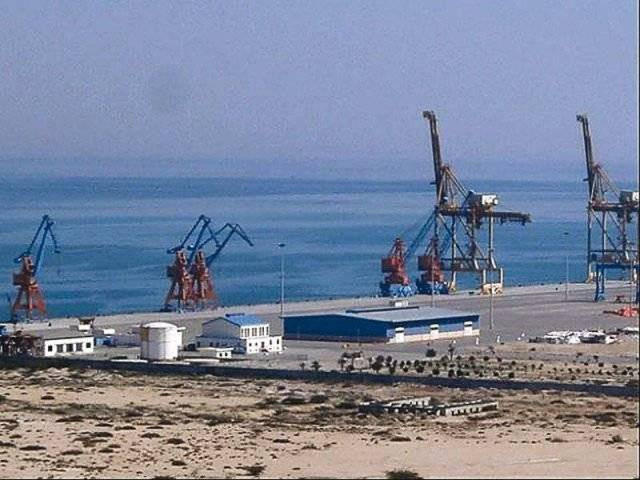Govt accused of not sharing details of CPEC projects
Senate panel voices concern as officials dodge questions

Pakistan-China Economic Corridor PHOTO: FILE
A parliamentary panel has once again voiced dissatisfaction over the government’s alleged secrecy on the progress made on projects related to the China-Pakistan Economic Corridor (CPEC).
In its fifth consecutive meeting, the Senate Special Committee on CPEC grilled officials to define the specifications of different sections and the expected time of completion of the agreed western route of the multi-billion-dollar deal with China.
CPEC project: No chance of corruption, says Ahsan Iqbal
The 1,674-kilometre-long western corridor runs between Dera Ismail Khan in Khyber-Pakhtunkhwa and Gwadar in Balochistan via Zhob, Quetta, Sorab, Basim, Panjgur, Hoshab and Turbat.
On Friday, Railways Secretary Parveen Agha told the parliamentary committee that a railway track was also planned alongside the western route, for which the feasibility would be completed in the next financial year.
She said the government was not just relying on the CPEC for the railway line but also expected to attract other potential investors.
Senator Nauman Wazir pointed out that Pakistan was being charged an exorbitant 8 per cent interest rate whereas the international rate for energy projects was currently 1.6 per cent. “Where are the government and our bureaucracy taking us?”
The planning and development secretary conveniently brushed off the question, saying the finance and water and power ministries were better equipped to respond to such questions.
Army seeks role in CPEC administration
However, no representative from either ministry was present in the committee meeting which was strongly condemned by the members.
Senator Farhatullah Babar also lamented that Chinese banks were charging a higher interest rate on loans from Pakistan. He questioned if the loans that Chinese banks were extending to Pakistan were even exempt of taxes.
His question was also put off to be directed to the relevant ministry later.
The parliamentarians demanded that the minutes of the Joint Coordination Committee (JCC) meeting should be shared with the parliament to enable the house to comprehend the true essence of the project and to prevent controversy and misunderstanding.
While underscoring the responsibility of JCC to implement the recommendations proposed in the All Parties Conference, the lawmakers called for the participation of all four provincial chief ministers as well as the representatives from Gilgit-Baltistan in the JCC to bring everyone on the same page.
A National Highway Authority representative informed the committee that the CPEC Western Route would be completed by 2018.
'CPEC a win-win opportunity'
The DI Khan-Zhob alignment, he added, is to be completed in 40 months, confirming the doubts of the committee members the government was only focusing on the western route without paying much heed to the eastern corridor.
Balochistan’s education minister said despite the fact the CPEC was to start from Gwadar, there has been virtually no headway on the ground over the projects related to the province.
He blamed the federal government for keeping the provincial government in the dark over its plans and asked to be taken onboard in consultative sessions.
The minister said although 70 per cent of the projects were related to his province, there had been no visible development. The committee also pressed the officials for giving priority to the neglected provinces of Khyber-Pakhtunkhwa and Balochistan.
The panel members asked if the planning and development ministry had any industrial policy in place regarding the Chinese import of crude oil via CPEC projects, to which the ministry’s secretary replied he would take up the matter with the high-ups.
Published in The Express Tribune, May 7th, 2016.



















COMMENTS
Comments are moderated and generally will be posted if they are on-topic and not abusive.
For more information, please see our Comments FAQ